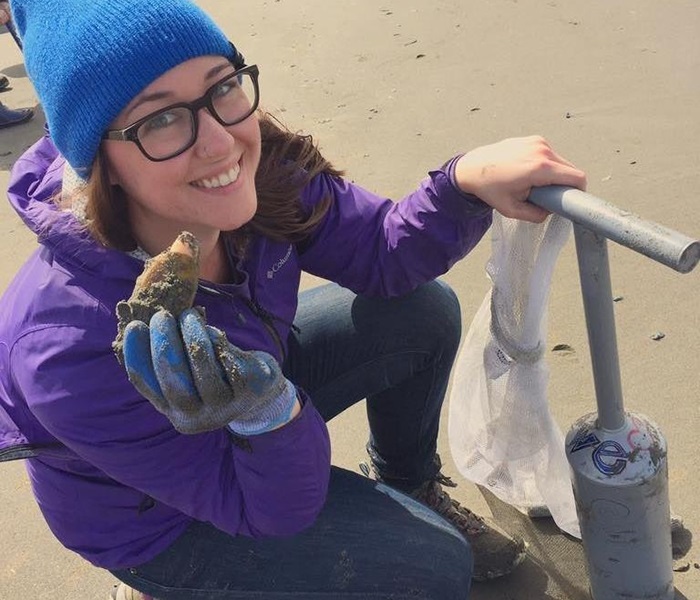Melissa Watkinson researches the social and cultural dimensions of ocean acidification

IAS alum Melissa Watkinson is a social scientist with Washington Sea Grant where she supports the social science efforts on the Olympic Coast Ocean Acidification Vulnerability study. Washington Sea Grant, the UW Applied Physics Laboratory, and the Joint Institute for the Study of the Atmosphere and Ocean have teamed with federal and tribal partners to study the social and ecological vulnerabilities of ocean acidification in the Olympic Coast. They hope their work will help policy makers and tribal communities develop evidence-based strategies for anticipating and responding to the effects of ocean acidification.
“Harvesting shellfish and sharing seafood has always been a way for my family to connect to the environment and to the each other,” says Watkinson. “When we began to observe that the abundance and health of seafoods in our region were in decline, and I learned about the effects that anthropogenic climate changes and other ocean changes were having on shellfish in particular, I knew that I wanted, and had the responsibility, to work on addressing these issues. I believe that the partnership between interdisciplinary academic institutions and the coastal tribal communities – the integration of western and indigenous sciences – has the potential for profound opportunities to address the social, cultural, and ecological impacts that these ocean changes have created.” Read about the partnership.
Watkinson is a Citizen of the Chickasaw Nation and grew up in the Pacific Northwest where she considers the Salish Sea her home. She earned both a B.A. in Global Studies and Society, Ethics & Human Behavior (’11) and M.A. in Policy Studies (’15) from UW Bothell. As a graduate student she worked with the Quinault Indian Nation to better understand the impacts of historic land policies on the capacity for coastal tribes to adapt to climate change. She also collaborated with Washington Sea Grant on a social indicators project for the Washington Marine Spatial Plan, and similarly to the socio-cultural dimensions of ocean acidification study with the Squaxin Island Tribe.
In addition to her work with Washington Sea Grant, Watkinson supports the Doris Duke Conservation Scholars Program, a multi-summer, undergraduate experiential learning program that explores biodiversity conservation and environmental justice across food, water, climate, and ecosystems within the Pacific Northwest. Watkinson is also co-chair of the City of Seattle’s Environmental Justice Committee, a citizen advisory body to the mayor’s office which deepens the influence of communities of color in the city’s environmental programs, ensuring that the experiences and policy priorities of people of color shape Seattle’s environmental work.
